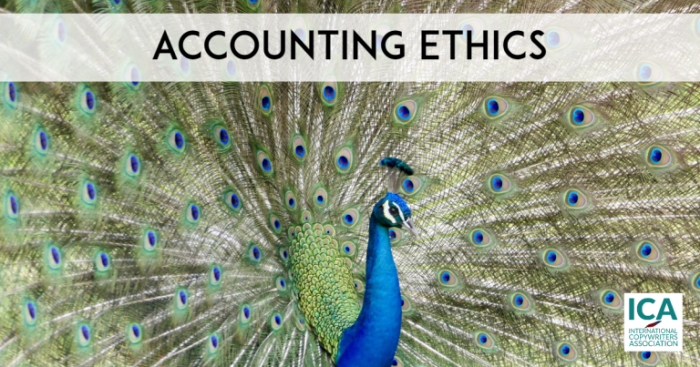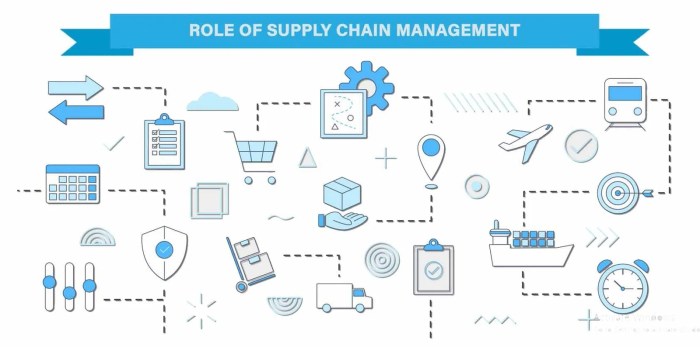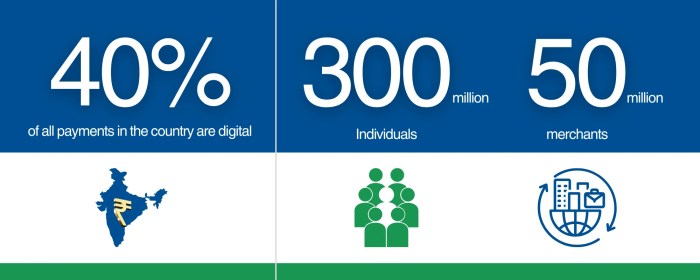The Importance of Ethical Accounting in a Globalized Economy is paramount. In today’s interconnected world, where businesses operate across borders and financial transactions span continents, the need for robust and ethical accounting practices is more critical than ever. The intricate web of international trade, complex financial instruments, and diverse regulatory landscapes creates fertile ground for both opportunities and challenges. This exploration delves into the core principles of ethical accounting, examining its impact on global financial stability, and the crucial role of stakeholders in maintaining integrity within the system.
This discussion will navigate the complexities of enforcing consistent ethical standards across vastly different national contexts, exploring the influence of multinational corporations and the role of international frameworks like IFRS. We’ll also examine how technological advancements, while enhancing efficiency, introduce new ethical dilemmas, and how these challenges can be addressed through proactive measures and a strong commitment to transparency and accountability.
Defining Ethical Accounting Principles in a Global Context: The Importance Of Ethical Accounting In A Globalized Economy
Ethical accounting, in its simplest form, ensures transparency, accuracy, and fairness in financial reporting. This is crucial for maintaining trust among stakeholders – investors, creditors, governments, and the public – and fostering a stable global economy. However, the complexities of a globalized world introduce significant challenges to establishing and enforcing universally accepted ethical standards.
Core tenets of ethical accounting practices universally include honesty, integrity, objectivity, and responsibility. Accountants are expected to adhere to established accounting standards, ensuring that financial statements accurately reflect a company’s financial position and performance. They must avoid conflicts of interest and maintain confidentiality of sensitive financial information. Furthermore, ethical accounting demands a commitment to continuous professional development, staying abreast of evolving regulations and best practices.
Ethical Accounting Standards Across Countries
While the core principles of ethical accounting remain largely consistent globally, the specific standards and their enforcement vary significantly across different countries. This disparity stems from diverse legal frameworks, cultural norms, and levels of economic development. For example, the level of detail and stringency in financial reporting requirements can differ dramatically between developed and developing nations. Developed economies often have more robust regulatory frameworks and stricter enforcement mechanisms compared to their developing counterparts. This discrepancy can lead to challenges in cross-border transactions and investment decisions, as the reliability and comparability of financial information may be compromised. Cultural factors also play a role, influencing attitudes towards transparency, accountability, and the role of accounting professionals.
Challenges in Enforcing Consistent Ethical Standards Globally
Enforcing consistent ethical accounting standards globally presents a multifaceted challenge. Variations in legal frameworks, enforcement capabilities, and accounting practices across jurisdictions create significant obstacles. Lack of harmonization in accounting standards, differing levels of regulatory oversight, and limited resources for enforcement agencies in some countries contribute to inconsistencies. Furthermore, the global nature of businesses and the ease of cross-border transactions can make it difficult to track and address unethical accounting practices effectively. The complexity of international collaborations and the lack of a single, globally recognized enforcement body further complicate the situation. Finally, the sheer volume of financial transactions occurring globally and the sophistication of accounting fraud techniques make detection and prosecution difficult.
Comparison of Ethical Accounting Frameworks
| Country | Key Principles | Enforcement Mechanisms | Challenges |
|---|---|---|---|
| United States | Generally Accepted Accounting Principles (GAAP), focus on transparency and materiality; strong emphasis on Sarbanes-Oxley Act (SOX) compliance. | Securities and Exchange Commission (SEC), Public Company Accounting Oversight Board (PCAOB), state boards of accountancy; robust legal framework and penalties for violations. | Complexity of GAAP, high compliance costs, potential for regulatory capture. |
| United Kingdom | International Financial Reporting Standards (IFRS), emphasis on true and fair view; strong focus on corporate governance and audit quality. | Financial Reporting Council (FRC), professional accountancy bodies (e.g., ICAEW); reliance on self-regulation and professional codes of conduct. | Balancing IFRS flexibility with enforcement consistency; navigating the impact of Brexit on accounting regulations. |
| China | Chinese Accounting Standards (CAS), influenced by IFRS; increasing emphasis on transparency and corporate governance; strong government oversight. | Ministry of Finance (MOF), China Securities Regulatory Commission (CSRC); increasing focus on strengthening enforcement and combating accounting fraud. | Harmonizing CAS with international standards; improving enforcement capacity and independence; addressing challenges related to state-owned enterprises. |
The Impact of Globalization on Accounting Practices
Globalization has profoundly reshaped the landscape of accounting practices, introducing both unprecedented opportunities and significant challenges. The increased interconnectedness of national economies has led to a more complex and intricate web of financial transactions, requiring sophisticated accounting methods and a heightened awareness of ethical considerations. This interconnectedness necessitates a consistent and reliable framework for reporting financial information across borders, a challenge that has spurred the development of international accounting standards.
The expansion of multinational corporations (MNCs) has been a key driver of this transformation. These organizations operate across numerous jurisdictions, each with its own unique legal and regulatory environment, creating a multifaceted accounting environment. The sheer scale and scope of MNC operations necessitate complex accounting systems capable of consolidating financial data from diverse sources and presenting a coherent picture of the organization’s global performance. This complexity increases the potential for errors, omissions, and even deliberate manipulation of financial data.
Multinational Corporations and Global Accounting Standards
MNCs, with their extensive international operations, play a pivotal role in shaping global accounting standards. Their influence is exerted through lobbying efforts, participation in standard-setting bodies, and the adoption of best practices within their own organizations. The sheer size and economic power of many MNCs often mean their accounting preferences carry significant weight in the development and implementation of international accounting standards. While this influence can contribute to greater harmonization of accounting practices worldwide, it also raises concerns about potential conflicts of interest and the dominance of certain corporate perspectives in shaping global norms. For instance, large US-based companies have historically exerted considerable influence on the development of International Financial Reporting Standards (IFRS).
Ethical Dilemmas in Cross-Border Transactions
Cross-border transactions inherently increase the potential for ethical dilemmas in accounting. Differences in accounting standards, regulatory frameworks, and cultural norms across countries can create opportunities for creative accounting practices or outright fraud. For example, variations in tax laws across jurisdictions can tempt companies to engage in transfer pricing manipulation, shifting profits to low-tax regions to minimize their overall tax burden. Similarly, the lack of uniform enforcement of accounting standards globally can make it easier for companies to conceal unethical or illegal activities. The challenge lies in ensuring transparency and accountability across borders, which requires robust regulatory frameworks and strong ethical oversight.
Accounting Scandals Resulting from Globalization and Inadequate Ethical Oversight
Several high-profile accounting scandals have underscored the risks associated with globalization and inadequate ethical oversight. The Enron scandal, for example, involved complex accounting practices designed to hide debt and inflate profits, ultimately leading to the company’s collapse. While not solely a product of globalization, the company’s complex web of international transactions and subsidiaries exacerbated the difficulties in uncovering the fraudulent activities. Similarly, the WorldCom scandal involved improper accounting practices related to the capitalization of expenses, which artificially inflated the company’s earnings. These cases highlight the critical need for robust ethical frameworks and independent audits to ensure the accuracy and reliability of financial reporting in a globalized economy. The lack of harmonized enforcement mechanisms across borders creates a challenge in addressing such issues effectively.
Ethical Considerations in International Financial Reporting Standards (IFRS)
The adoption of International Financial Reporting Standards (IFRS) represents a significant step towards harmonizing global accounting practices. While IFRS aims to enhance transparency and comparability in financial reporting, ethical considerations remain paramount in ensuring the integrity of the system. This section will explore the role of IFRS in promoting ethical accounting, its limitations, and a hypothetical scenario illustrating the challenges involved.
IFRS’s Significance in Promoting Global Accounting Consistency
The primary goal of IFRS is to create a single set of high-quality, globally accepted accounting standards. This consistency facilitates cross-border investment, enhances capital markets efficiency, and allows investors to more easily compare the financial performance of companies operating in different jurisdictions. By providing a common framework, IFRS reduces the complexities and ambiguities associated with diverse national accounting standards, potentially leading to more accurate and reliable financial reporting. This, in turn, contributes to a more ethical and transparent global financial system.
Examples of IFRS Addressing Ethical Concerns in Financial Reporting
IFRS includes several provisions designed to address ethical concerns. For example, the standard on revenue recognition (IFRS 15) aims to reduce earnings management by providing clear guidance on when revenue should be recognized. This reduces the opportunity for companies to manipulate their financial statements to meet specific targets or mislead investors. Similarly, standards on financial instruments (IFRS 9) aim to enhance transparency and comparability in the accounting for complex financial instruments, reducing the potential for misrepresentation or manipulation. The emphasis on fair value accounting, while debated, aims to provide a more realistic picture of a company’s financial position, minimizing the scope for deliberate understatement or overstatement of assets and liabilities.
Limitations of IFRS in Preventing Unethical Accounting Practices
Despite its strengths, IFRS is not a panacea for unethical accounting practices. The standards themselves are complex and require significant professional judgment in their application. This subjectivity can be exploited by companies seeking to manipulate their financial reports. Furthermore, enforcement of IFRS varies across jurisdictions, with some countries having more robust regulatory frameworks than others. The lack of consistent enforcement can create opportunities for unethical behavior. Finally, cultural differences and varying levels of corporate governance can influence the extent to which IFRS is applied ethically. Companies operating in jurisdictions with weak corporate governance structures may be more inclined to engage in unethical accounting practices, even if IFRS is technically being followed.
A Hypothetical Scenario Illustrating an Ethical Dilemma Under IFRS
Imagine a multinational corporation operating in a developing country with weak regulatory oversight. The company is considering a significant investment in a new project with an uncertain future. Under IFRS, the company must assess the recoverability of its investment and account for any impairment. However, the company’s management is under pressure to report strong financial results to appease shareholders. They might be tempted to understate the impairment loss, presenting a rosier picture of the investment’s performance than is realistically justified. This action would violate IFRS principles of fair presentation and could mislead investors. A potential solution would be to engage an independent valuation expert to provide an objective assessment of the investment’s fair value. This would provide an external check on management’s judgment and help ensure that the financial statements accurately reflect the economic reality of the situation. Additionally, the company should strengthen its internal controls and establish a robust ethics program to deter such behavior in the future.
The Role of Auditors and Regulators in Maintaining Ethical Standards
The integrity of financial reporting, and by extension, the stability of the global economy, rests heavily on the shoulders of independent auditors and regulatory bodies. Their combined efforts to enforce ethical accounting practices are crucial for maintaining trust in financial markets and promoting responsible corporate behavior. Without robust oversight and accountability, the potential for fraud, manipulation, and ultimately economic instability significantly increases.
Auditors and regulators play complementary, yet distinct, roles in ensuring ethical accounting. Auditors provide an independent assessment of a company’s financial statements, while regulators establish the framework within which those statements are prepared and audited. The effectiveness of both functions is essential for a healthy and transparent financial ecosystem.
Responsibilities of Independent Auditors in Upholding Ethical Accounting
Independent auditors have a critical responsibility to maintain the integrity of the financial reporting process. This involves more than just detecting fraud; it necessitates a proactive approach to ensuring compliance with relevant accounting standards and ethical principles. Their role extends to verifying the accuracy and fairness of financial statements, identifying potential risks, and communicating findings transparently to stakeholders. Auditors must adhere to strict codes of conduct, maintaining independence and objectivity to avoid conflicts of interest. Failure to do so can have serious consequences, including legal repercussions and reputational damage. A key aspect of their responsibility involves performing thorough due diligence, applying professional skepticism, and documenting their work meticulously.
Comparison of Roles of Different Regulatory Bodies in Overseeing Ethical Accounting Practices Globally
Various regulatory bodies at national and international levels play crucial roles in overseeing ethical accounting practices. For instance, the Securities and Exchange Commission (SEC) in the United States sets accounting standards and oversees public companies’ compliance. Similarly, the Financial Conduct Authority (FCA) in the United Kingdom plays a comparable role within its jurisdiction. At the international level, the International Accounting Standards Board (IASB) develops International Financial Reporting Standards (IFRS), which are adopted by many countries worldwide. These bodies work to establish consistent standards, investigate potential violations, and impose sanctions when necessary. The effectiveness of these bodies varies across jurisdictions, depending on factors such as enforcement capabilities, resources, and political influence. The level of harmonization in accounting standards and regulatory frameworks also influences the consistency of ethical accounting practices across different countries.
Best Practices for Auditors to Maintain Independence and Objectivity
Maintaining independence and objectivity is paramount for auditors. Several best practices contribute to this goal. These include establishing clear policies and procedures to manage conflicts of interest, regularly rotating audit teams to prevent familiarity bias, and implementing robust quality control measures. Furthermore, ongoing professional development and adherence to ethical codes of conduct are essential. Transparency in reporting audit findings and communicating potential risks to stakeholders is also crucial. Finally, establishing a strong internal culture that prioritizes ethical behavior is vital for fostering an environment where auditors can act independently without fear of retribution.
Impact of Strong Regulatory Oversight on Ethical Accounting Behaviors
Strong regulatory oversight significantly influences ethical accounting behavior. For example, the Sarbanes-Oxley Act of 2002 (SOX) in the United States, enacted in response to major corporate accounting scandals like Enron and WorldCom, strengthened corporate governance and increased auditor independence. This led to improved financial reporting quality and a greater level of trust in the market. Similarly, the implementation of IFRS in many countries has promoted greater consistency and comparability in financial reporting, facilitating cross-border investment and reducing information asymmetry. Conversely, weaker regulatory frameworks and lax enforcement can lead to higher incidence of accounting irregularities and financial fraud, as seen in certain emerging markets with less developed regulatory infrastructure. The consequences of weak oversight can be far-reaching, impacting investor confidence, economic growth, and overall societal well-being.
The Impact of Technology on Ethical Accounting
Technological advancements have profoundly reshaped the accounting landscape, presenting both significant opportunities and considerable challenges to ethical practices. The automation of processes and the vast quantities of data now available offer unprecedented potential for accuracy and efficiency. However, this same technology also creates new avenues for manipulation, fraud, and the erosion of trust. The ethical considerations surrounding the use of technology in accounting are therefore paramount in a globalized economy.
The integration of technology into accounting processes has undeniably enhanced efficiency and accuracy. Automated systems can process vast amounts of data quickly and consistently, reducing the likelihood of human error in routine tasks such as data entry and reconciliation. Furthermore, real-time data analysis allows for quicker identification of potential discrepancies and anomalies, potentially preventing larger-scale financial irregularities. However, this reliance on technology also introduces new ethical dilemmas.
Data Manipulation and Fraud in Digital Accounting Systems
The very sophistication of digital accounting systems can be exploited for fraudulent activities. The ease with which data can be altered, deleted, or hidden presents significant challenges to maintaining the integrity of financial records. For instance, sophisticated software can be used to create false entries, manipulate financial statements, or conceal illicit transactions. The lack of a readily apparent audit trail in some systems can make detecting these activities particularly difficult. Moreover, the decentralized nature of cloud-based accounting systems can make it harder to track and monitor activities across different locations and departments. A high-profile example of this is the case of the Theranos scandal, where sophisticated technology was used to mask fraudulent blood testing results. The lack of proper internal controls and oversight allowed for widespread manipulation of data that went undetected for a considerable period.
Technology for Improved Transparency and Accountability
Despite the risks, technology also offers powerful tools to enhance transparency and accountability in accounting. Blockchain technology, for example, provides an immutable record of transactions, making it extremely difficult to alter or delete data. This increased transparency can significantly deter fraudulent activities and build greater trust among stakeholders. Real-time data dashboards can provide stakeholders with immediate access to key financial information, promoting greater oversight and accountability. Furthermore, advanced analytics can identify patterns and anomalies that might indicate fraudulent activities, enabling timely intervention. The use of data encryption and secure access controls can also protect sensitive financial data from unauthorized access and manipulation.
Measures to Mitigate Ethical Risks Associated with Technology in Accounting
The ethical risks associated with technology in accounting require proactive and comprehensive mitigation strategies. Implementing robust internal controls, including segregation of duties and regular audits, is crucial. Investing in advanced security systems, such as data encryption and access controls, is essential to protect sensitive financial data. Regular employee training on ethical accounting practices and the responsible use of technology is vital. Furthermore, fostering a strong ethical culture within the organization, where employees feel comfortable reporting concerns without fear of retribution, is paramount.
- Implement robust internal controls and segregation of duties.
- Invest in advanced security systems, including data encryption and access controls.
- Conduct regular audits and reviews of accounting systems and processes.
- Provide comprehensive training to employees on ethical accounting practices and the responsible use of technology.
- Foster a culture of ethical behavior and open communication within the organization.
- Establish clear policies and procedures for data management and access.
- Utilize data analytics to identify potential anomalies and fraudulent activities.
- Regularly update and patch accounting software to address security vulnerabilities.
Stakeholder Engagement and Ethical Accounting
Ethical accounting practices are not merely a matter of compliance; they are fundamental to building trust and fostering long-term sustainability within a globalized economy. Stakeholder engagement plays a crucial role in promoting these practices, ensuring transparency, and ultimately contributing to the overall success of an organization. By actively involving stakeholders in the process, companies can foster a culture of accountability and responsibility, mitigating risks and enhancing their reputation.
Stakeholder engagement in ethical accounting involves a proactive and ongoing dialogue with individuals and groups who have a vested interest in a company’s financial reporting and operations. This collaborative approach facilitates a better understanding of expectations, identifies potential ethical concerns, and ensures that accounting practices align with the values and interests of all parties involved. Open communication and transparency are essential for fostering trust and building a strong foundation for ethical conduct.
Key Stakeholders Impacted by Unethical Accounting Practices
A wide range of stakeholders can be severely affected by unethical accounting practices. These include investors who rely on accurate financial information to make informed decisions about their investments; employees whose livelihoods depend on the stability and success of the company; creditors who extend loans based on the company’s reported financial health; customers who may be impacted by a company’s financial instability or fraudulent activities; and the wider community, including local governments and taxpayers, who may be affected by job losses, reduced tax revenue, or environmental damage. Unethical accounting practices can erode public trust, damage reputations, and lead to significant financial losses for all involved.
Methods for Holding Companies Accountable for Ethical Accounting
Stakeholders possess various mechanisms to hold companies accountable for ethical accounting. Investors can divest from companies perceived as engaging in unethical practices, exert pressure through shareholder activism, and file lawsuits for financial losses resulting from misleading information. Creditors can refuse to extend credit or demand higher interest rates from companies with questionable accounting practices. Regulatory bodies, such as securities commissions and accounting oversight boards, can investigate and impose sanctions on companies found to be in violation of accounting standards. Whistle-blowers can report unethical conduct to authorities, potentially triggering investigations and legal action. Finally, public pressure through media exposure and consumer boycotts can also effectively hold companies accountable.
Effective Stakeholder Engagement Methods for Ethical Accounting
Companies can adopt several strategies to engage effectively with stakeholders on ethical accounting matters. Establishing an ethics committee comprised of diverse stakeholders can provide valuable insights and guidance on ethical dilemmas. Regular reporting on ethical accounting practices, including transparent disclosure of financial information and adherence to relevant accounting standards, can foster trust and build confidence among stakeholders. Conducting regular stakeholder surveys and consultations can help identify concerns and expectations, allowing companies to proactively address potential issues. Establishing a confidential reporting mechanism for whistleblowers can encourage the reporting of unethical behavior and ensure that concerns are addressed promptly and effectively. Finally, participating in industry initiatives and supporting the development of stronger ethical accounting standards can demonstrate a commitment to transparency and accountability.
The Future of Ethical Accounting in a Globalized World

The increasing interconnectedness of the global economy presents both opportunities and significant challenges for ethical accounting. Future trends will necessitate a more robust and adaptable framework, capable of navigating complex technological advancements, evolving regulatory landscapes, and heightened stakeholder expectations. The coming years will see a continued push for greater transparency, accountability, and the integration of ethical considerations into every facet of accounting practice.
The evolution of ethical accounting will be profoundly influenced by several key factors. These include the rapid pace of technological innovation, the ongoing refinement of international accounting standards, and the growing demand for corporate social responsibility. Navigating these complexities successfully requires a proactive and forward-thinking approach, one that anticipates and addresses potential challenges before they escalate into crises.
Check what professionals state about How to Improve Business Cash Flow with Smart Accounting and its benefits for the industry.
Emerging Trends and Challenges
The future of ethical accounting will be shaped by several key trends. Increased data analytics capabilities, for example, will allow for more sophisticated fraud detection and risk assessment. However, this also raises concerns about data privacy and the potential for algorithmic bias. The rise of sustainable finance and environmental, social, and governance (ESG) investing will demand greater transparency in reporting on environmental and social impacts. Simultaneously, the increasing complexity of global supply chains will necessitate more robust mechanisms for ensuring ethical sourcing and labor practices throughout the entire value chain. Furthermore, the growing influence of non-state actors, such as NGOs and activist investors, will exert greater pressure on companies to adopt higher ethical standards. Finally, differing interpretations and enforcement of international accounting standards across jurisdictions will remain a persistent challenge, necessitating enhanced cross-border collaboration and harmonization efforts.
Technological Shaping of Ethical Accounting Practices, The Importance of Ethical Accounting in a Globalized Economy
Technological advancements will significantly reshape ethical accounting practices in the coming years. Artificial intelligence (AI) and machine learning (ML) will automate many routine tasks, freeing up human accountants to focus on more complex ethical considerations. Blockchain technology offers the potential to enhance transparency and traceability in supply chains, reducing the risk of fraud and unethical practices. However, the implementation of these technologies requires careful consideration of potential biases embedded in algorithms and the need for robust data security measures. For instance, AI-powered audit tools can identify anomalies and potential red flags more efficiently than manual reviews, but their effectiveness depends on the quality and completeness of the data they are trained on. A failure to address potential biases in the algorithms could lead to unfair or inaccurate conclusions. Similarly, the use of blockchain to track the movement of goods across international borders can enhance transparency and accountability, but only if all participants in the supply chain are willing and able to participate in the system.
Areas Requiring Further Development in Ethical Accounting Standards and Regulations
Several key areas require further development in ethical accounting standards and regulations. The lack of consistent global standards for ESG reporting presents a major challenge, hindering comparability and making it difficult for investors to assess the true environmental and social impact of companies. The increasing use of data analytics and AI raises concerns about data privacy and algorithmic bias, requiring the development of new ethical guidelines and regulatory frameworks. Furthermore, the rapid pace of technological change necessitates a more agile and adaptable regulatory environment, capable of keeping pace with innovation. Finally, greater emphasis should be placed on fostering a culture of ethical conduct within organizations, rather than relying solely on regulatory compliance. This includes strengthening professional ethics training programs and promoting a culture of whistleblowing and accountability.
An Ideal Future Scenario for Ethical Accounting
In an ideal future scenario, ethical accounting practices would be seamlessly integrated into every aspect of business operations. Global accounting standards would be universally adopted and consistently enforced, ensuring transparency and comparability across borders. Technological advancements would be harnessed to enhance transparency, efficiency, and accountability, while mitigating potential risks associated with data privacy and algorithmic bias. A strong culture of ethical conduct would be fostered within organizations, driven by a commitment to stakeholder engagement and a proactive approach to risk management. In this scenario, the focus would shift from mere compliance to a proactive embrace of ethical principles as a core driver of business success. This would create a more sustainable and equitable global economy, built on a foundation of trust and integrity. For example, a global standard for ESG reporting would allow investors to easily compare the sustainability performance of companies across different industries and countries, leading to increased investment in companies with strong ethical and environmental practices. The widespread adoption of blockchain technology could create a more transparent and secure supply chain, reducing the risk of unethical labor practices and environmental damage.
Final Review
Ultimately, the Importance of Ethical Accounting in a Globalized Economy rests on the collective responsibility of businesses, auditors, regulators, and stakeholders. Maintaining ethical accounting practices isn’t merely a matter of compliance; it’s the cornerstone of trust, stability, and sustainable economic growth. By fostering a culture of integrity and accountability, we can mitigate risks, enhance investor confidence, and create a more equitable and prosperous global financial system. The future of ethical accounting hinges on continuous adaptation, innovation, and a steadfast commitment to upholding the highest standards of professional conduct.
Question Bank
What are some common examples of unethical accounting practices?
Examples include fraudulent financial reporting, manipulating earnings, concealing liabilities, and engaging in insider trading.
How does a lack of ethical accounting impact investors?
Unethical accounting practices can lead to inaccurate financial statements, misleading investors, and causing significant financial losses.
What role do whistleblowers play in maintaining ethical accounting?
Whistleblowers play a crucial role by reporting unethical practices, often leading to investigations and corrective actions.
How can technology help improve ethical accounting practices?
Blockchain technology, for example, can enhance transparency and traceability of financial transactions, reducing the potential for fraud.







